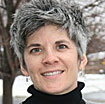Commentary on Psalm 112:1-9 [10]
There are two obvious connections a preacher might make between Psalm 112 and Matthew 5.1
The first has potential for highlighting the liturgical season: the light/darkness theme in 112:4 (“They rise in the darkness a light for the upright”) appears in Matthew 5 when Jesus proclaims, “You are the light of the world” (verse 14). In this season of Epiphany it is intriguing to reflect deeply on how we who are followers of the light that shines in the darkness, Jesus Christ, also serve as lights in and to the world.
A second, broader possibility is to think of Psalm 112 as an extended beatitude: blessed are those who fear the Lord (verse 1), who delight in his commandments (verse 1), who are gracious, merciful and righteous (verse 4), who deal generously and lend (verse 5), who conduct their affairs with justice (verse 5), who have given to the poor (verse 9).
Like the verses before today’s Gospel reading that provide an important lens for vss. 13f, Psalm 112 is a thorough description of the characteristics of those who fear the Lord. Despite the squeamishness of some when it comes to an emphasis on the actions/deeds of those who fear the Lord, there is no denying that Scripture demonstrates a direct correlation between our actions and our way of life.
Psalm 112 even suggests this has a bearing on the future of the righteous ones. Blessed are those who fear the Lord, for their descendants will be mighty in the land. Blessed are those who conduct their affairs with justice, for good will come to them. They will never be shaken. They will be remembered forever. One can hear the rhythm of the beatitudes in the Psalm.
Perhaps the most promising homiletical potential has to do with the complementarity of Psalm 112 and Psalm 111; they belong together. The two Psalms are similar in organization; both are acrostic poems, which contain twenty-two lines with each line beginning with successive letters of the Hebrew alphabet.
Even more, they utilize similar words and phrases: both refer to the upright (111:1 and 112:2, 4), agents who are gracious and merciful (111:4 and 112:4), providers (111:5 and 112:9), and doers of justice (111:7 and 112:5). Both focus heavily on the future (in 111:8 the works are established forever and ever, and in 112:8 hearts are steady and in the end will triumph).
The amazing thing about this similar use of language is that one Psalm (111) is focused on the deeds of the Lord and the other (112) is focused on the deeds of those who fear the Lord. Could it be that those who fear the Lord are expected to act like the Lord? Even more, could it be that those who find great delight in his commands are capable of mirroring the deeds of the Lord?
The complementarity of these two Psalms suggests so. Before our works righteousness detectors sound, note that Psalm 111 comes first; it is only because our Lord is already gracious and merciful and just that we are at all capable of being gracious and merciful and just. It is this admission that offers a possible lens through which to read Matthew 5. We are not “the light of the world” and “salt of the earth” ex nihilo.
No, we are “the light of the world” and “salt of the earth” because our Lord Jesus is light and salt and because Jesus proclaims us as such. One could say that the Psalm 111-like portion of Matthew 5 is the fact that Jesus is the proclaimer. The law and commandments do not disappear with Jesus’ coming; rather, they are fulfilled. The Psalm 112-like commitments do not go away; in fact, the righteousness of those who fear the Lord is to exceed that of the scribes and Pharisees (Matthew 5:20).
Our lives and our futures are shaped by the way we mirror the deeds of our Lord. Our generous dealings and just affairs, our free distribution and generosity toward the poor, mirror the deeds of our Lord. Our actions are described in terms of our Lord’s actions. Our Lord’s actions shape and guide our actions. Hallelujah. Praise the Lord!
Important addendum: If we preachers fail to attend to verse 10 in Psalm 112 and verses 17-20 in Matthew 5, our hearers will notice. So, homiletical tip number one is not to ignore these sections. Of course, there is the question of how to address them. Perhaps these few points will prompt your reflections, at least with regard to the psalm.
First, note the ratio of words focused on the righteous to those focused on the wicked. Clearly the psalmist is more interested in attending to the deeds and descriptions of the lives of the righteous. Second, perhaps the psalmist is preparing his hearers for their naysayers; that is, those who look on with anger. Verse 10 need not be a threat to the righteous but a statement of the obvious; there will be those who do not conduct their lives similarly.
Finally, contrast the pitiful yield of the wicked (“nothing”) and the bountiful yield of the righteous (verses 1-9). Fearing the Lord and finding delight in his commands will make a difference in our lives, now and in the future. Perhaps there are those in your midst who can attest to this claim. That would be a powerful sermon.
Notes
- Commentary first published on this site on Feb. 9, 2014.


February 9, 2020